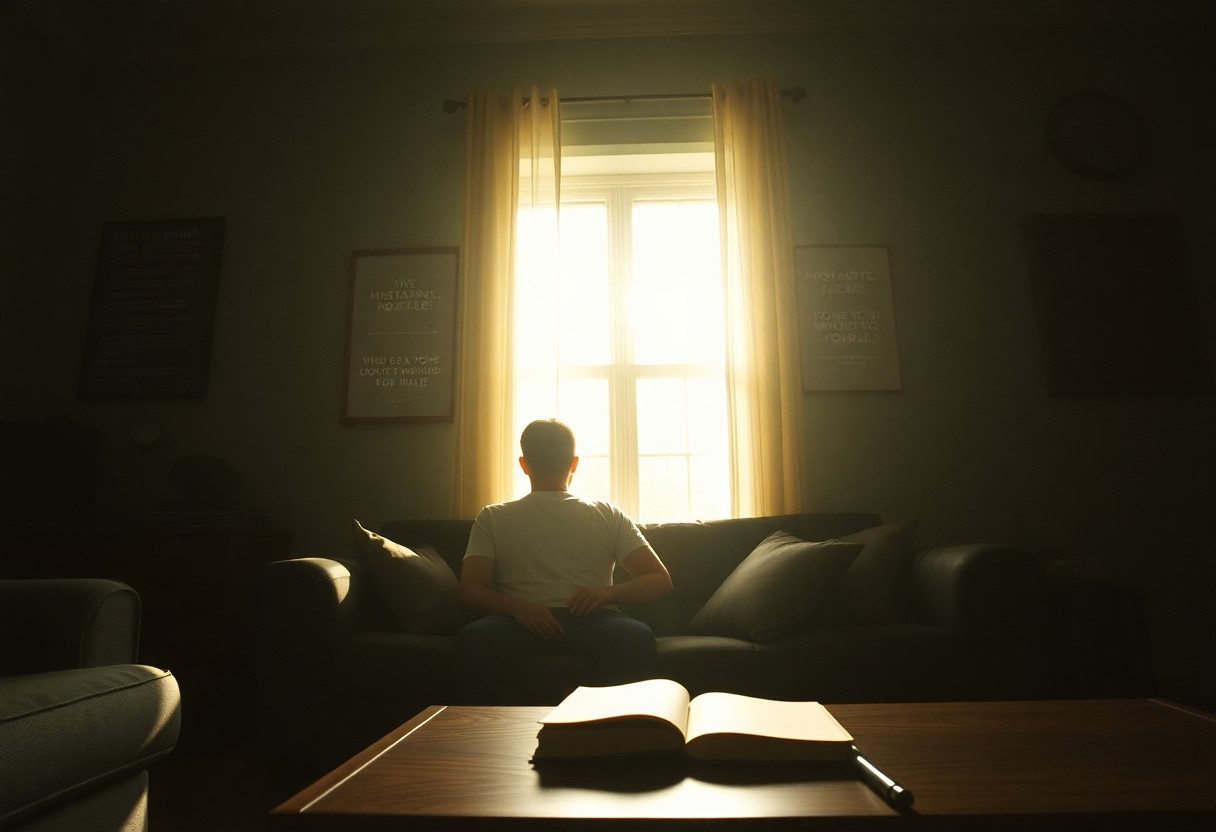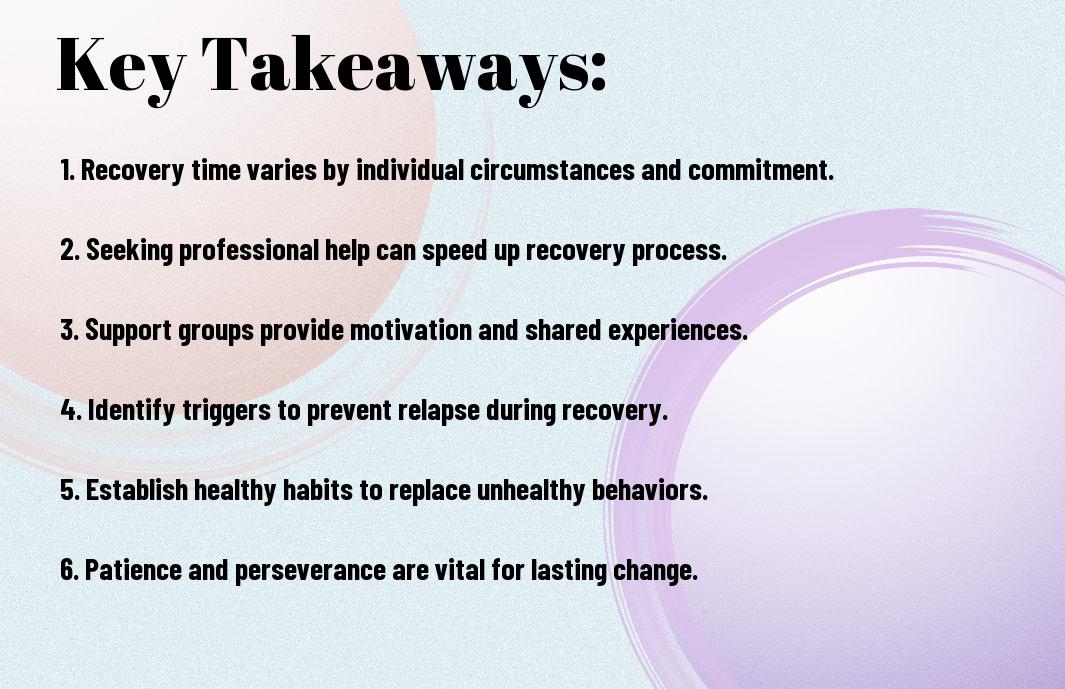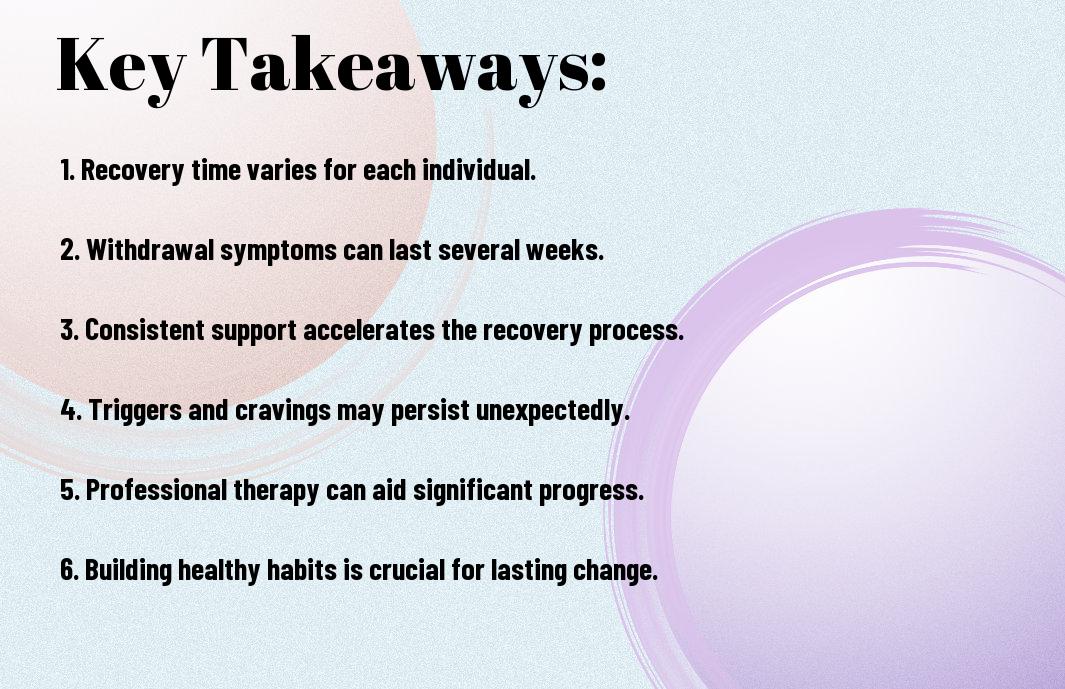Recovery from porn addiction can often feel daunting and overwhelming, leaving you questioning when hope will reemerge in your life. As you navigate this challenging journey, understanding the signs of progress and the stages of healing is vital. You may encounter setbacks, but recognizing that these moments are part of the process can offer reassurance. If you’re struggling with the risk of Porn Addiction Relapse, know that hope can return through perseverance, support, and the right strategies.
Key Takeaways:
- Hope can often return when individuals recognize their addiction and express a desire for change.
- Engaging in support groups or therapy can provide encouragement, feedback, and shared experiences, fostering hope.
- Set small, achievable goals related to recovery to build confidence and reinforce a sense of progress.
- Understanding triggers and developing coping strategies can empower individuals in managing their addiction.
- Practicing self-compassion and patience with oneself throughout the recovery journey can promote a more hopeful outlook.
- Celebrating milestones, no matter how small, can help sustain motivation and optimism in the recovery process.
- Building a network of supportive friends or family can recharge hope and provide a sense of belonging during tough times.
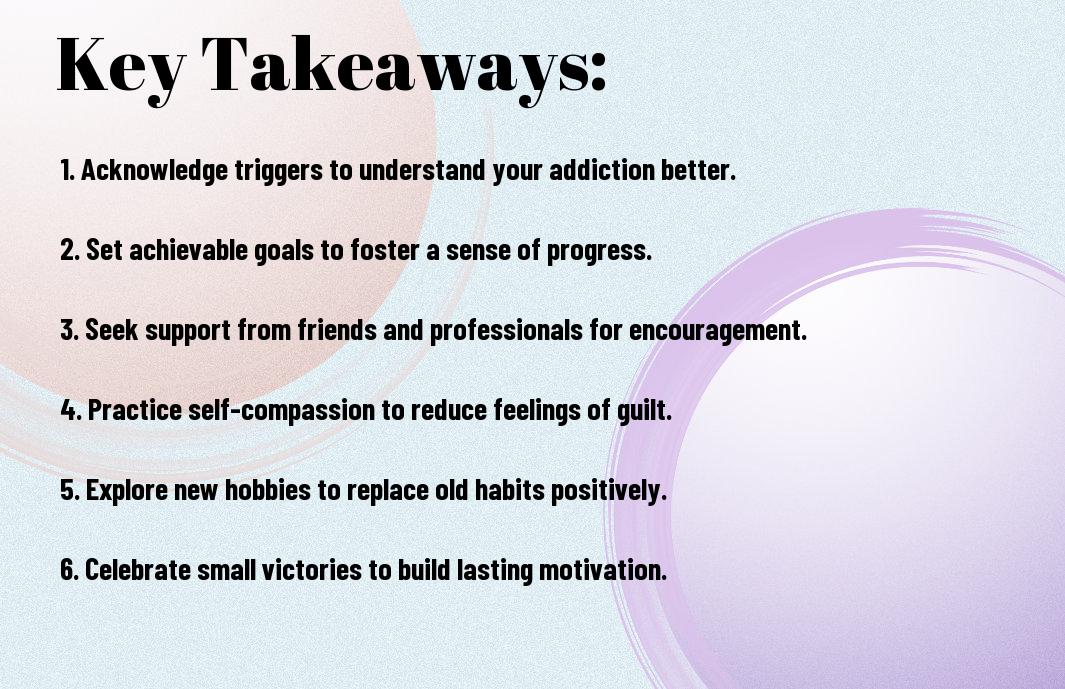
Understanding Porn Addiction
As you probe into the complex issue of porn addiction, it’s imperative to recognize that it is a behavioral addiction, characterized by an overwhelming urge to consume pornography despite negative consequences. This compulsive behavior can interfere with your daily life, relationships, and mental well-being, leading to a cycle that feels increasingly difficult to break. Understanding the dynamics of porn addiction lays the groundwork for your recovery journey.
The Science Behind Addiction
Above all, porn addiction is rooted in how your brain processes pleasure. Engaging with pornography triggers the release of dopamine, a neurotransmitter linked to pleasure and reward. Over time, your brain may become reliant on this stimulus, diminishing your ability to find joy in everyday activities. This neurochemical shift means that you may need more extreme content to achieve the same level of satisfaction, perpetuating the cycle of addiction.
Signs and Symptoms of Porn Addiction
Before you can address porn addiction, it’s vital to identify its signs and symptoms. These may include an inability to control your consumption, neglecting responsibilities, and experiencing feelings of shame or guilt after viewing porn. Awareness of these indicators can help you recognize the impact of your behavior and motivate you to seek change.
Also, you may find yourself investing excessive time in searching for or viewing porn, leading to isolation from friends and family. You might notice that your relationships suffer, or you may prefer pornography over real-life intimacy. Physical symptoms such as increased anxiety, irritability, and withdrawal experiences may also emerge when you attempt to cut back. Recognizing these signs can be the first step towards reclaiming control over your life.
The Recovery Process
Clearly, the recovery journey from porn addiction requires commitment and self-reflection. You will navigate various emotional and psychological challenges as you work towards healthier habits. Resources such as Finding Hope and Love When Battling Pornography can provide important support during this transformative time. Engaging with supportive communities and therapeutic interventions can foster a stronger sense of hope, ultimately guiding you through the process.
Stages of Recovery
After acknowledging your addiction, you will move through distinct stages in your recovery. The initial stage may involve recognizing the triggers that lead to use, while later stages focus on building resilience and healthier coping strategies. Embracing each stage with patience and understanding will allow you to develop a richer and more fulfilling life.
Setting Realistic Goals
With clear intentions, setting realistic goals can significantly enhance your recovery process. These goals serve as milestones that can help you stay focused and motivated. By offering yourself achievable targets, you nurture a positive self-image and create a structured pathway to success.
Even small, incremental goals can lead to sustained progress in your recovery journey. Consider setting daily or weekly targets that align with your values and aspirations, such as reducing your screen time or practicing mindfulness. Re-evaluating these goals regularly will allow you to adapt to your evolving needs, celebrate your victories, and stay committed to your long-term vision of a healthier life.
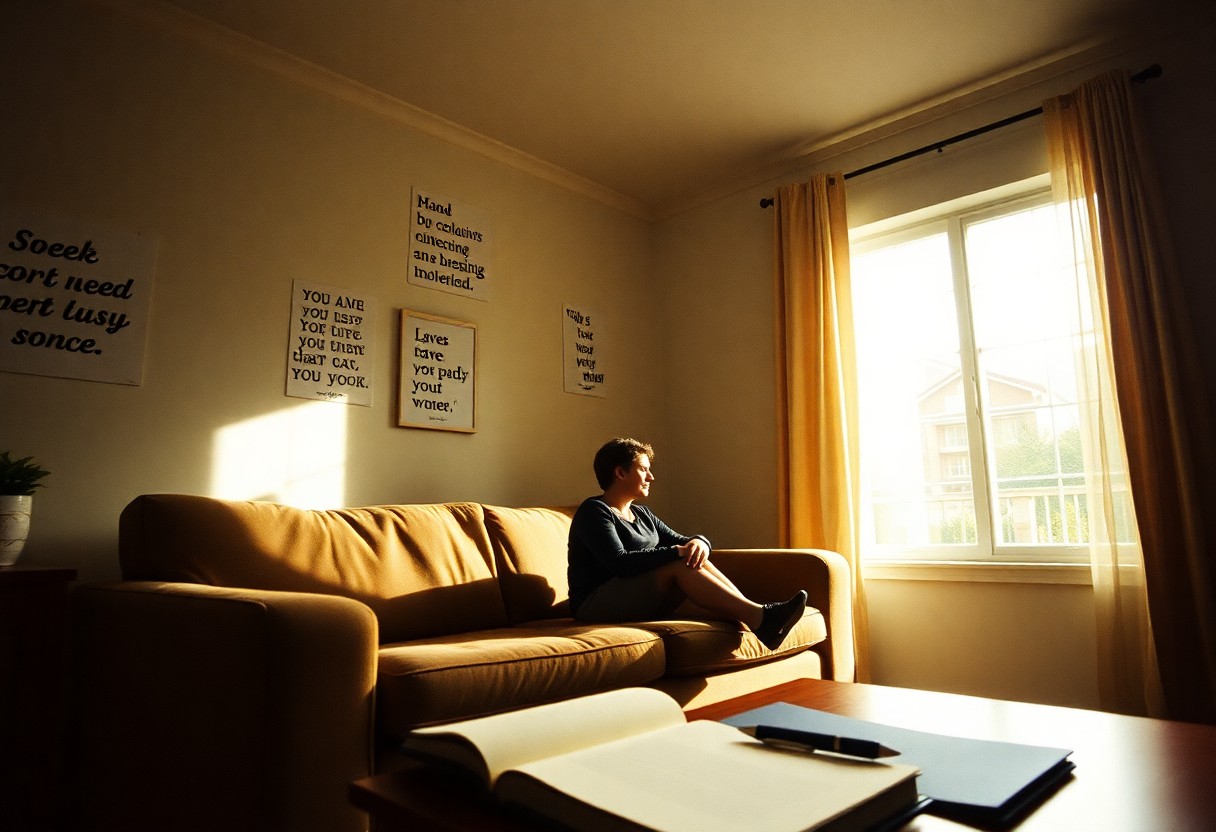
Finding Hope in Recovery
Not every day will feel like a step forward during your recovery from porn addiction, but hope can emerge in the most unexpected ways. As you navigate this journey, finding moments of clarity and support will help reignite the light within you. With each small victory, you can gradually rebuild your self-esteem and envision a healthier future. Embracing the ups and downs is part of the process, and hope is always waiting to be rediscovered.
Peer Support and Community
Around you, a network of individuals who share similar struggles can provide invaluable encouragement and understanding. Engaging in support groups or connecting with others facing porn addiction helps diminish feelings of isolation. This sense of community fosters connections, allowing you to share experiences and strategies for overcoming challenges while motivating one another to stay committed to recovery.
The Role of Therapy
The journey toward recovery often benefits from professional guidance. Engaging with a therapist specializing in addiction can help you explore underlying issues that may contribute to your behavior. Through therapy, you will gain insight into patterns, develop coping strategies, and receive support tailored to your unique needs, enabling you to navigate this complex landscape with greater confidence.
Role of therapy in your recovery is to offer structured support tailored to your specific experience. A therapist will help you identify triggers and unhealthy thought patterns, while providing tools for managing urges effectively. The therapeutic relationship fosters a non-judgmental space where you can express feelings and fears, ultimately guiding you toward understanding and healing. As you uncover the root causes of your addiction, you’ll be better equipped to make lasting changes in your life.
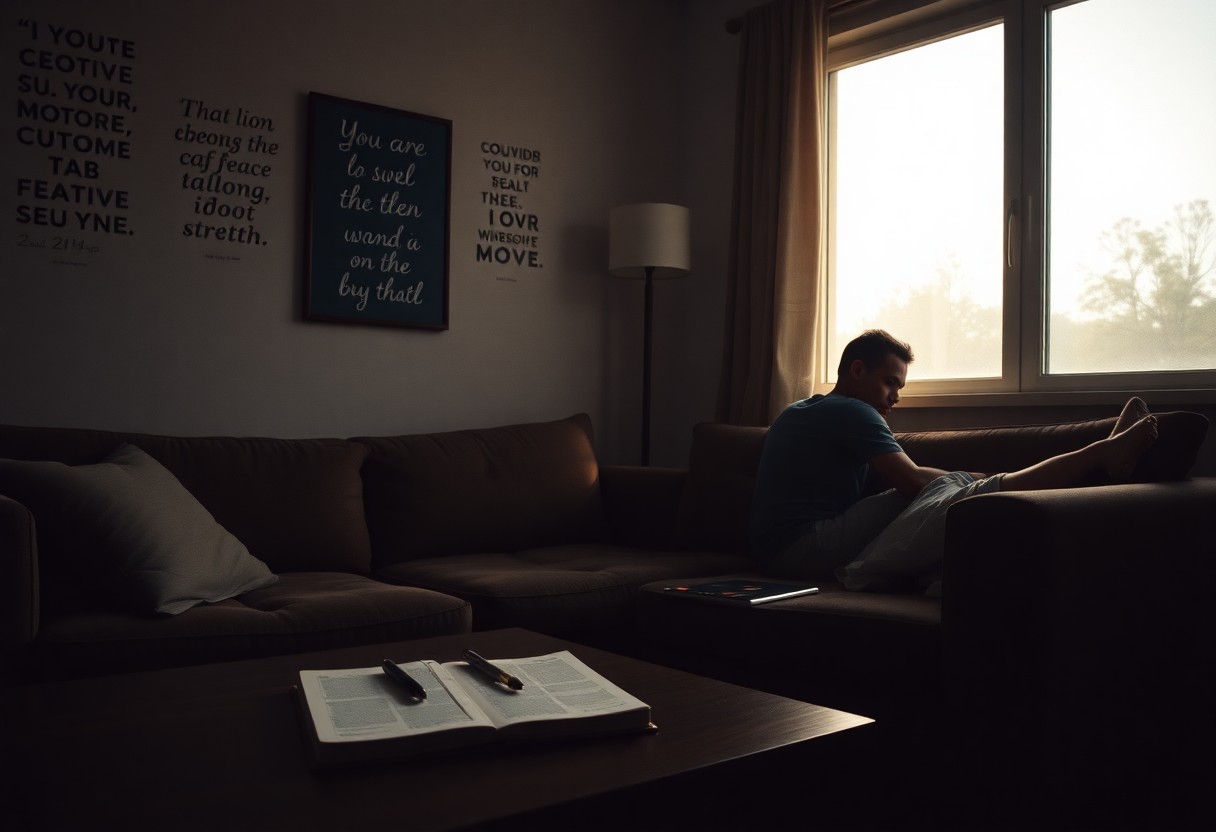
Coping Mechanisms for Cravings
For those navigating the path of porn addiction recovery, developing effective coping mechanisms for cravings is crucial. Acknowledging the urge is the first step, but it’s vital to have strategies in place to manage those moments of weakness. By utilizing various tools and techniques, you can reduce the intensity and frequency of your cravings while reinforcing your commitment to a healthier lifestyle. This creates space for healing and growth, guiding you toward a more fulfilling life free from addiction.
Healthy Alternatives
By engaging in healthy alternatives, you can divert your attention from cravings and channel your energy into positive activities. Consider exercise, reading, or picking up a new hobby as constructive outlets. These activities not only occupy your thoughts but also cultivate a sense of achievement and satisfaction that can replace the temporary pleasure derived from porn. You could explore creative endeavors like writing or art, which can serve as emotional releases and provide a rewarding experience.
Mindfulness and Self-Compassion
Between the cravings and your response lies the power of mindfulness and self-compassion. Practicing mindfulness helps you stay present, reducing the overwhelming nature of cravings by observing your thoughts without judgment. By being kind to yourself during this process, you acknowledge that recovery is a journey filled with ups and downs. This approach encourages you to treat yourself with the same care you would offer a friend facing similar challenges.
Understanding the role of mindfulness and self-compassion is crucial in your recovery journey. Mindfulness equips you with the ability to observe your cravings objectively, allowing you to create distance between the urge and your decisions. In tandem, self-compassion fosters resilience, enabling you to forgive yourself for setbacks and treat failures as growth opportunities. Together, these practices can significantly enhance your emotional well-being, shift your focus from guilt to understanding, and empower you to navigate cravings with greater ease.
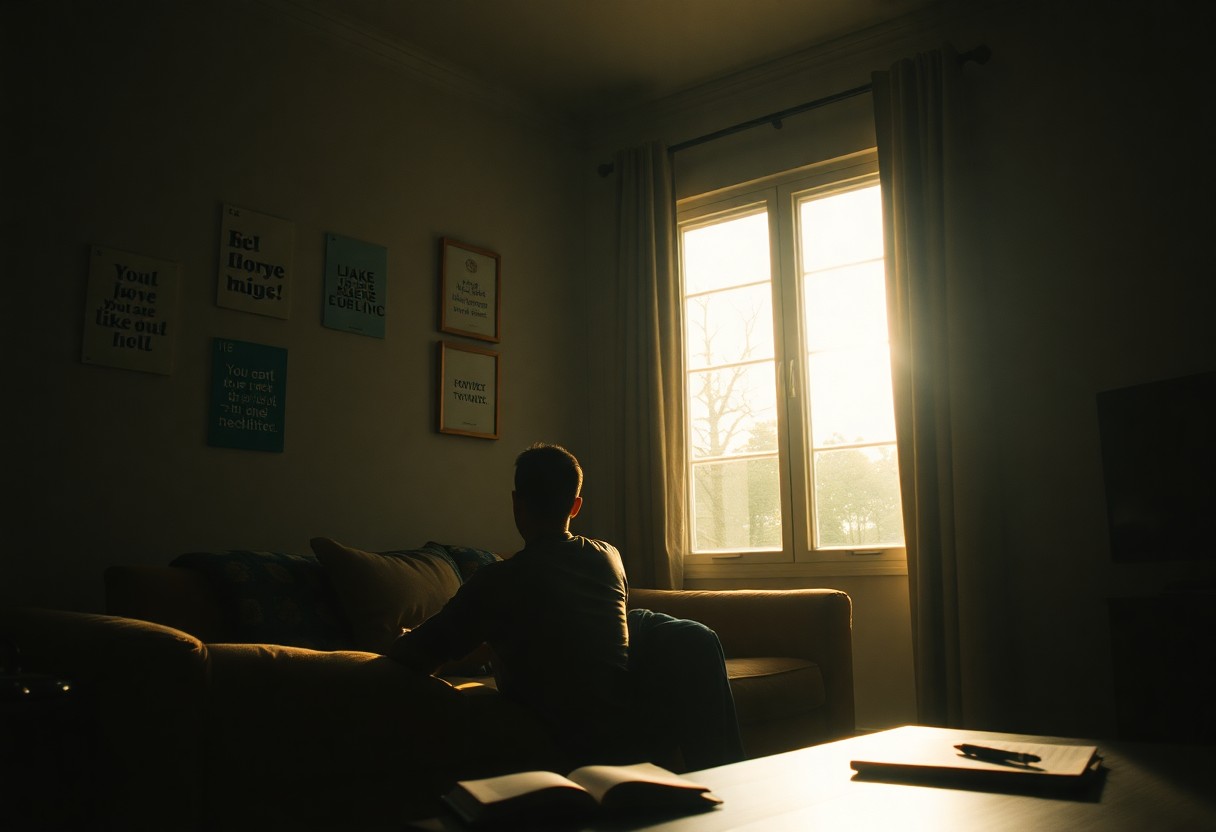
Long-Term Strategies for Success
Unlike quick fixes, long-term strategies for success in porn addiction recovery hinge on developing sustainable practices that foster resilience and growth. By committing to a holistic approach that combines self-awareness, emotional regulation, and community support, you can create a robust foundation for your recovery journey, paving the way for lasting change.
Building New Habits
After identifying triggers and unhealthy patterns, it is crucial to build new habits that promote a healthier lifestyle. Start small and focus on incremental changes, such as engaging in physical activities, practicing mindfulness, or developing creative outlets. These new habits will help replace the time previously spent on pornography and allow you to explore more fulfilling pursuits.
Maintaining a Supportive Environment
Environment plays a vital role in your recovery process. Surround yourself with individuals who understand your journey and support your goals. This can include friends, family, or support groups who foster a positive atmosphere, encouraging open communication and accountability.
With the right environment, you can significantly enhance your recovery. Surrounding yourself with supportive individuals not only reduces feelings of isolation but also provides encouragement during tough times. Creating physical spaces that limit access to triggers and distractions further strengthens your commitment to change. By actively engaging with your support network, you reinforce your resolve and cultivate positive relationships that inspire growth and resilience.
Personal Stories of Hope
Despite the challenges you may face during porn addiction recovery, many individuals have found their way back to a fulfilling life. Stories of hope remind you that overcoming this struggle is possible, and that healing is attainable. Each journey is unique, resonating with the understanding that setbacks do not equate to failure. You can find inspiration in the narratives of others who have conquered their addictions and emerged stronger, allowing you to envision a brighter, healthier future.
Transformative Journeys
Below are accounts of individuals who have turned their lives around after battling porn addiction. Each story showcases the power of resilience and determination. These transformative journeys emphasize that recovery is not linear; it often includes missteps, but with perseverance, you can improve. By sharing these experiences, you can gain insight into your own potential for change. They serve as testimonials that hope can indeed flourish after a dark period.
Lessons Learned
Journeys of recovery unveil many lessons that are instrumental to your growth and healing. Often, individuals discover that self-compassion and establishing a supportive network are vital elements in their recovery. You learn to recognize triggers and replace them with healthy habits, paving your way to wellness. Acknowledging the importance of relapse as a part of the recovery process can further empower you, allowing you to approach each setback as an opportunity for learning and progress.
Learned through experience, individuals find that vulnerability and openness can lead to deeper connections with themselves and others. Understanding your addiction’s underlying causes can shed light on patterns in your behavior and emotions. This awareness facilitates healing, empowering you to confront the root issues rather than masking them. Ultimately, recognizing that recovery is a journey filled with both triumphs and challenges equips you with the tools to continue moving forward, fostering a mindset of growth and resilience.
Summing up
So, as you navigate your journey through porn addiction recovery, hope gradually returns as you recognize your progress and reconnect with your values. Acknowledging small victories, seeking support, and understanding that setbacks are part of the process can reinforce your motivation. Note, hope is not a distant goal but a daily choice; it flourishes as you cultivate healthier habits and prioritize self-compassion. By taking consistent steps forward, you can foster a renewed sense of purpose and clarity in your life.
FAQ
Q: What triggers the feeling of hope during porn addiction recovery?
A: The feeling of hope often begins to emerge when individuals recognize their desire for change and start taking active steps toward recovery. This can be through seeking therapy, joining support groups, or understanding the negative impact of their addiction. Small victories, such as reduced consumption or better control over impulses, can also contribute to a renewed sense of hope.
Q: How long does it typically take for hope to return in recovery?
A: The timeline for hope’s return can vary greatly from person to person. Some may experience a shift in perspective within weeks, while others might find it takes months. Factors such as personal commitment, the severity of the addiction, and support systems play significant roles in how quickly hope can be rekindled.
Q: What role do support groups play in restoring hope?
A: Support groups provide a sense of community and shared experience, which can be incredibly uplifting. Hearing stories of recovery from others who have faced similar struggles can instill hope and reinforce the belief that recovery is achievable. The collective encouragement and accountability foster a positive environment that promotes healing.
Q: Are there specific practices that can help cultivate hope during the recovery process?
A: Yes, several practices can help cultivate hope, such as journaling about progress, setting achievable goals, and engaging in mindfulness or meditation. Additionally, educating oneself about the impacts of porn addiction and the brain’s ability to heal can instill confidence in the recovery journey.
Q: How does self-compassion contribute to feeling hopeful?
A: Self-compassion allows individuals to treat themselves with kindness rather than harsh judgment. This positive attitude can alleviate feelings of shame and guilt related to addiction, promoting a more optimistic outlook. Embracing flaws and understanding that mistakes are part of recovery can significantly enhance a person’s sense of hope.
Q: What signs indicate that hope is truly returning in recovery?
A: Signs of hope returning may include greater motivation to participate in recovery activities, increased resilience in facing challenges, improved emotional well-being, and a shift in perspective regarding the future. A person may also start to envision a fulfilling life without addiction and express gratitude for small advancements in their journey.
Q: Can addressing underlying issues increase feelings of hope in recovery?
A: Absolutely. Many individuals find that addressing underlying issues, such as trauma, anxiety, or depression, can significantly enhance their recovery experience. When these root causes are dealt with effectively, it often leads to a greater sense of emotional stability and hope for a healthier future, allowing for a more holistic approach to overcoming addiction.
